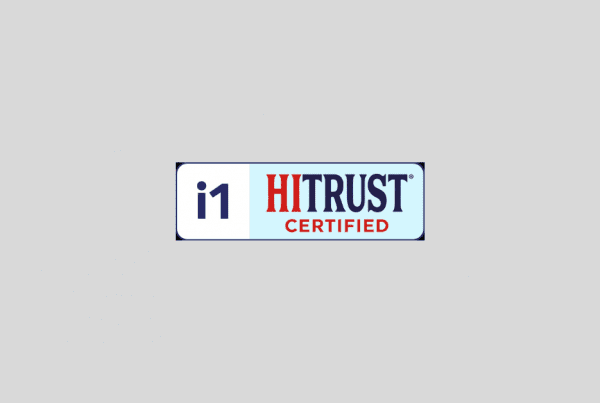The counseling treatment plan is a core component of effective mental health treatment. Not only is it a map for treating a client, it is necessary for compliance with insurance and governmental mandates. However, managing these plans at scale is a complex task that often creates headaches for clinicians and directors in large outpatient behavioral health practices.
If you’re struggling to manage the logistics of treatment plan documentation and wondering how you’ll cope in light of practice growth, be encouraged. With the right EHR, it’s possible to streamline the management of behavioral health treatment plans. By leveraging software that is specifically designed for behavioral health, you can create and organize these plans at scale with less effort.
The Multi-Faceted Challenge of Counseling Treatment Plans
A 2021 analysis of treatment planning for clients with serious mental illness (SMI) bears out the idea that good treatment planning is easier said than done. The analysis found that “providers have a strong understanding of evidence-based principles of treatment decision-making. However, actual treatment planning processes rarely live up to those principles.”
In other words, mental health professionals are well aware of the importance of strong treatment plans, but the logistics of generating them can get in the way. Often, you’re trying to remain compliant with a variety of payer requirements, state laws, and individual patient needs. This requires some amount of customization, and the more patients you serve, the more demands customization will place on your time—and, the more problems you’ll have with an inflexible software system that doesn’t accommodate the needs of mental health providers.
Obviously, this burden can be a limiting factor in the growth of your practice. Surpassing these limits demands a treatment plan management strategy that is scalable.
Overcoming the Complexity: Strategic Management of Counseling Treatment Plans
When managing behavioral health treatment plans, you must strike a balance between standardization and customization. Standardization helps you create plans more quickly and maintain consistency in patient treatment. It also allows for interoperability between clinicians. But customization is necessary to remain compliant with the requirements of payers and regulators.
The question becomes: how do you maintain this balance?
Challenges of Scaling Counseling Treatment Plan Management
In order to maintain a baseline quality of care, you need consistency in treatment planning. This may be hard to do when you have a diverse group of clinicians with varying approaches. The requirements of payers and governmental agencies can exacerbate this problem. If not handled well, this can leave providers at risk of clinician burnout, leading to decreased productivity and compromised patient outcomes. Avoiding burnout is of paramount importance.
How EHRs Assist Treatment Planning Management
An EHR system is not just a tool for simplifying these complex processes—it can also be a partner. In the past, EHR systems were treated as mere data storage and retrieval systems, but modern EHRs offer more comprehensive solutions that streamline workloads of all sorts. This is true for counseling treatment plan management, especially if you seek an EHR specifically designed for behavioral health.
The right EHR can make your job easier by providing:
- Libraries of customizable templates. Existing templates help speed the treatment plan creation process, while customization features allow you to efficiently tailer them for specific needs.
- Automated workflows and documentation tools. Reducing repetitive manual processes increases productivity and helps guard against burnout.
- Advanced reporting capabilities. You can ably manage oversight and compliance by using reporting capabilities built into the EHR.
- Scalability features. A good EHR will offer features that can grow along with your practice.
Real-World Impact: Transitioning to an EHR Solution
In practical terms, what does it look like to use an EHR to improve counseling treatment plans? A few hypothetical examples can paint a picture of the potential.
Example One: Co-Occurring Disorders
Clinicians at your large practice are struggling to manage treatment plans for patients with co-occurring disorders. Information about coordinating care must be manually added to treatment plans, and as a result, cooperation between mental health and substance abuse treatment teams is challenging.
After implementing a specialized EHR, it becomes faster and easier to document co-occuring disorders and communicate with other treatment teams. As collaboration becomes easier, patient results improve and administrative burdens decline.
Example Two: Telehealth
Your multi-site behavioral health clinic needs better treatment planning processes for patients receiving telehealth services. Because the organization spans multiple states, it’s difficult to document telehealth services consistently.
An EHR with seamless telehealth integration allows your clinicians to easily create treatment plans based on their telehealth sessions, and makes it easier to standardize that documentation without compromising the specific requirements of each state you serve.
Example Three: Diverse Clients
Your large practice finds it difficult to create culturally a competent treatment plan for everyone in your diverse patient population. Your existing system lacks support for cultural assessment and doesn’t always capture the nuance of socio-cultural factors, which leads clinicians to rely on manual methods to capture cultural considerations in treatment planning. This makes for inconsistent quality between plans.
A new EHR with cultural competency assessment options makes treatment plans better standardized across your organization and helps clinicians serve clients with confidence. Your clinicians spend less time on their work and more time focusing on those they serve. Patients from minority groups feel understood, and your practice gains a reputation as an effective treatment facility for people of all backgrounds.
Growth Checklist Whitepaper
We’ve assembled a comprehensive Growth Checklist to guide you through the essential steps for success.
Best Practices for Selecting EHR Solutions in Behavioral Health
When selecting an EHR system to meet the specific needs of managing behavioral health treatment plans at scale, here are important considerations to look for:
- Customization options. Assess the strength of customization offerings in the EHR’s treatment planning features.
- User-friendliness. Remember, this is the system that your staff and providers will be using every day. Intuitive design is a must. In addition, ask potential EHR providers about their offerings for staff training during software implementation.
- Integration. Ask how the EHR will integrate with other software programs you may be using, as well as its interoperability with external healthcare systems like pharmacies.
- Updates and adaptations. Choose an EHR provider that is committed to updating and continuously improving the software to keep up with changing tech capabilities and healthcare regulations.
- Technical support. Choose a company that offers ongoing technical support for their system.
- Security and compliance. Prioritize security and compliance features to make sure that sensitive health information, including treatment plans, is protected. Look for industry-standard security protocols like encryption, access controls, and adherence to HIPAA.
Long-Term Investment in Success
Managing counseling treatment plans at scale can be a difficult task for a large practice. The demands of diverse payers and regulatory boards, as well as the time constraints on providers themselves, may feel overwhelming. Specialized EHRs with treatment planning features can save time, reduce effort, minimize staff burnout, and scale with you as your practice grows.
Consider the long-term benefits of investing in a solution that not only meets your current needs, but future needs as well.








